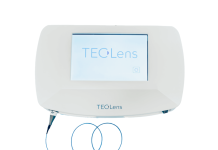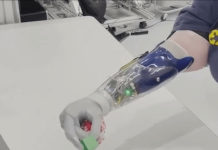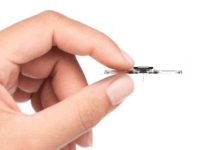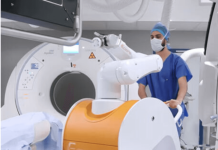CorTec today announced the first human implantation of its proprietary brain-computer interface (BCI) system, Brain Interchange.
The procedure, led by Dr. Jeffrey G. Ojemann and Dr. Steven C. Cramer, took place at Harborview Medical Center in Seattle. Ojemann and Cramer serve as co-principal investigators for a study taking place under FDA investigational device exemption (IDE).
Related: Carlsmed announces first case with AI-powered spine surgery tech
Freiburg, Germany–based CorTec won the IDE for its closed-loop BCI platform last year.
CorTec plans for its study to gather initial safety data. It evaluates whether direct cortical electrical stimulation can enhance upper-limb motor recovery in stroke patients.
Ojemann said in a news release that the implant proved successful and the patient remains in good condition.
“The first implantation of our BCI marks a milestone for European medical neurotechnology and underscores CorTec’s emergence as Germany’s first implantable BCI developer, ready to compete on the global stage,” said Dr. Frank Desiere, CEO of CorTec. “Building on our extensive experience in developing advanced components and active implantable systems, our proprietary cutting-edge BCI system is now entering human clinical testing, aiming to help people affected by neurological diseases recover lost function and enhance their quality of life. We are proud of this new era of innovation and are committed to expanding the possibilities of neurotechnology to improve outcomes for patients.”
CorTec designed its Brain Interchange system to deliver fully implantable, closed-loop BCI to clinicians to investigate therapies. The company believes the closed-loop functionality enables new possibilities for individualized treatments.
Brain Interchange continuously records brain activity, instantly interprets signals and delivers targeted electrical stimulation in real time. It enhances neuroplasticity — the brain’s ability to reorganize neural networks. CorTec’s study explores whether the system can help the brain relearn lost functions, accelerating and improving the rehabilitation of patients.
The company says that patients with the BCI may benefit from neuroplasticity-inducing stimulation during rehabilitation. Regaining control of the upper limbs would enable more independence and quality of life for patients.
“This breakthrough opens the door to therapies that were once unimaginable,” said Dr. Martin Schuettler, CorTec CTO. “For the first time, our BCI system connects wirelessly to external hardware – no cables, no physical links. This approach is part of the transformation of neurological therapies worldwide, built on a technology platform that can be tailored to multiple neurological conditions, delivering real-time, patient-specific treatment.
I’m incredibly proud of our team and our partners, in particular Jeffrey G. Ojemann and Jeffrey Herron of UW Medicine, who turned years of research into real hope for patients.”




